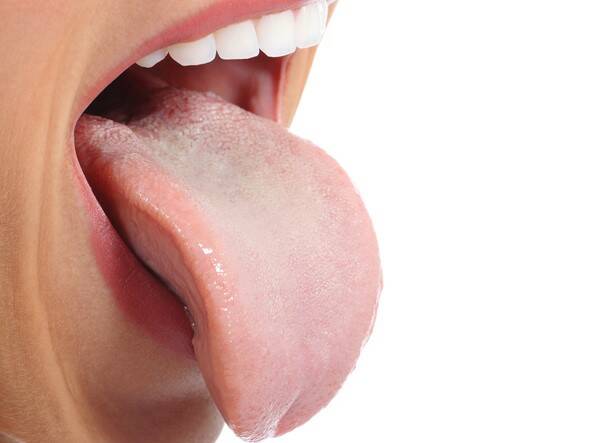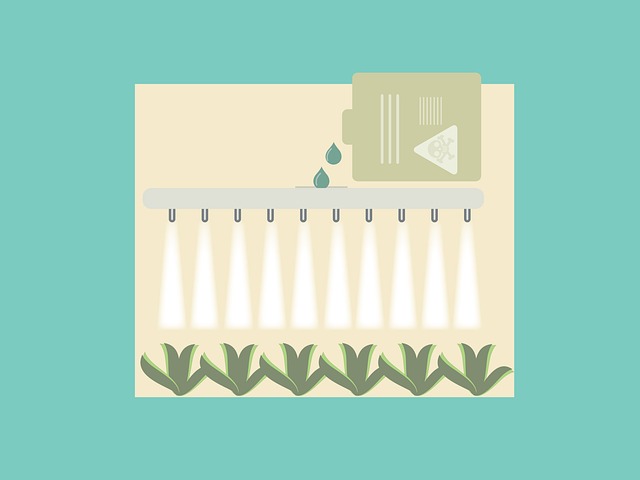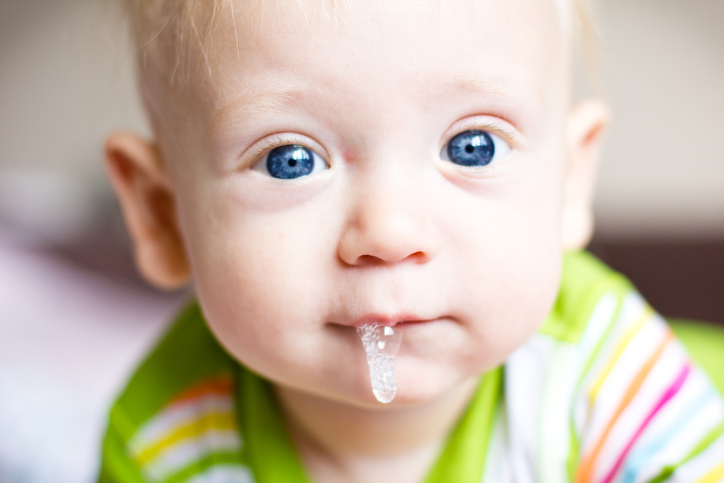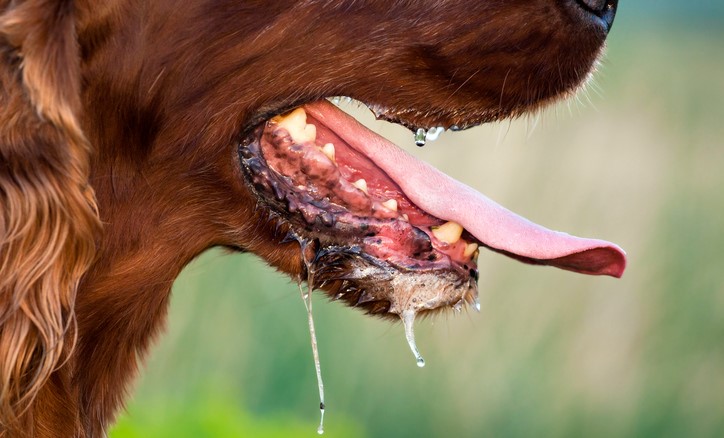Increased saliva production: what signals excess saliva and a mouth full of saliva?

It occurs reflexively, i.e. when the senses are stimulated. For example, when we look at food or smell it. It can also be triggered by chewing. In pregnancy, it occurs mainly in the first trimester. And in some cases, it is a symptom of various diseases.
For example, due to mechanical irritation when eating spicy and spicy food or due to an inflammatory process in the oral cavity.
Typical and normal hypersalivation
Excessive saliva production is also typical for various psychological or sensory stimuli. Reflexively, it occurs, for example, when a person sees or smells tasty food. Similarly, when chewing, saliva production increases and taste receptors are activated.
Saliva secretion is controlled by the parasympathetic system. Psychological factors that can cause increased salivation include, for example, stress or fear.

In pregnancy
In the first trimester, increased saliva production occurs mainly as an accompanying symptom of morning sickness. It may be present throughout the entire period of pregnancy. The exact cause is unknown.
Even if it is not a symptom of the disease, it makes life uncomfortable and less comfortable. Cases when even a liter of saliva is produced by increased salivation worsen the state of health due to dehydration. Therefore, consultation with a doctor is advisable.
Ptyalism in diseases
Increased saliva production (professionally also ptyalism) occurs in several diseases. It is an accompanying symptom, for example, in vomiting.
Increased salivary secretion can occur in:
- neurological diseases (epilepsy, stroke, multiple sclerosis, ALS, myasthenia gravis)
- CNS (central nervous system) disorders
- digestive disorders (e.g. GERD, there may be an aftertaste in the mouth and excessive salivation, also in pancreatic and liver diseases)
- poisoning (heavy metals, mushrooms, alcohol)
- inflammations and infections in the oral cavity (stomatitis)
- inflammation of the upper respiratory tract
- psychiatric disorders (mental retardation, dementia)
- use of certain drugs (parasympathomimetics)
- allergic reaction
- injuries in the oral cavity, even directly to the salivary glands
- diabetes mellitus, inflammation in the oral cavity is common due to impaired immunity, but also in hypoglycaemia
- impaired swallowing, for example in the case of a tumour in the oral cavity
Salivation in case of poisoning

Activation of the parasympathetic system also occurs in intoxication (poisoning). In this case, it is a life-threatening condition. In the case of poisoning, this phenomenon occurs only in some cases.
Most often, if the poisoning is caused by pesticides used in agriculture. Or if the person is poisoned by heavy metals, insecticides, organic solvents or fungi.
In the case of mushroom poisoning, the first symptoms usually appear within an hour. The person's pupils constrict, there is abdominal pain and increased saliva production. After a short time, however, the saliva disappears and is replaced by dryness. Sometimes the person falls into a coma and medical help must be summoned immediately.
Increased saliva production in this case is a warning sign. If possible, vomiting should be induced. The poison must be removed from the digestive system as soon as possible to prevent the poison from being digested in the intestines and spreading throughout the body.
In case of inflammation in the oral cavity
Excessive saliva production often occurs in oral inflammation. Painful swallowing can be an accompanying problem. The pain is exacerbated by swallowing, and saliva accumulates in the mouth.

For example, this is the case with tonsillitis. It is also manifested by reddening of the tonsils, their swelling, white coating. But also by an unpleasant pain in the throat, which can have the character of scratching, aggravated by swallowing. This is the cause of increased salivation.
In children, chronic problems with the upper respiratory tract are common. However, dangerous is, for example, epiglottitis. In this case, one of the symptoms is increased salivation, impaired breathing and a forced position of the head of the sniffing dog.
Excessive production of saliva occurs in young children even when teeth are growing. In that case, it is not a manifestation of the disease. Children in this case may be restless, have a need to chew more on various objects, especially in the place where a new tooth is pushed.
In some neurological diseases
Several diseases of the nervous system are also manifested by excessive salivation, and sometimes even drooling from the mouth. For example, Huntington's disease, which is a neurodegenerative disease causing impaired mobility and movement control.
In addition to impaired joint mobility and psychological disorders such as dementia, depression and speech disorders, Huntington's disease is also characterised by hypersalivation. Speech and swallowing disorders, as well as excessive saliva production, are typical especially in the later stages of the disease.
Increased secretion of saliva, but also, for example, tears and sweat, also occurs at the onset of Parkinson's disease. This is also a neurological disease. The essence of the disease is the loss of nerve cells in the midbrain. This results in problems with control and coordination of movement. Muscle stiffness and constant trembling are also typical.
Salivation and rabies

Excessive salivation is also a symptom of rabies, which is caused by a virus that is transmitted by saliva. It is most often contracted after contact with affected animals. The disease is manifested not only by salivation but also by seizures. Treatment should be initiated immediately.
If excessive saliva production is not provoked by a common cause or an external stimulus, it is always necessary to deal with the diagnosis of this condition.
Video on the causes of excessive salivation
Diseases with symptom "increased saliva production"










